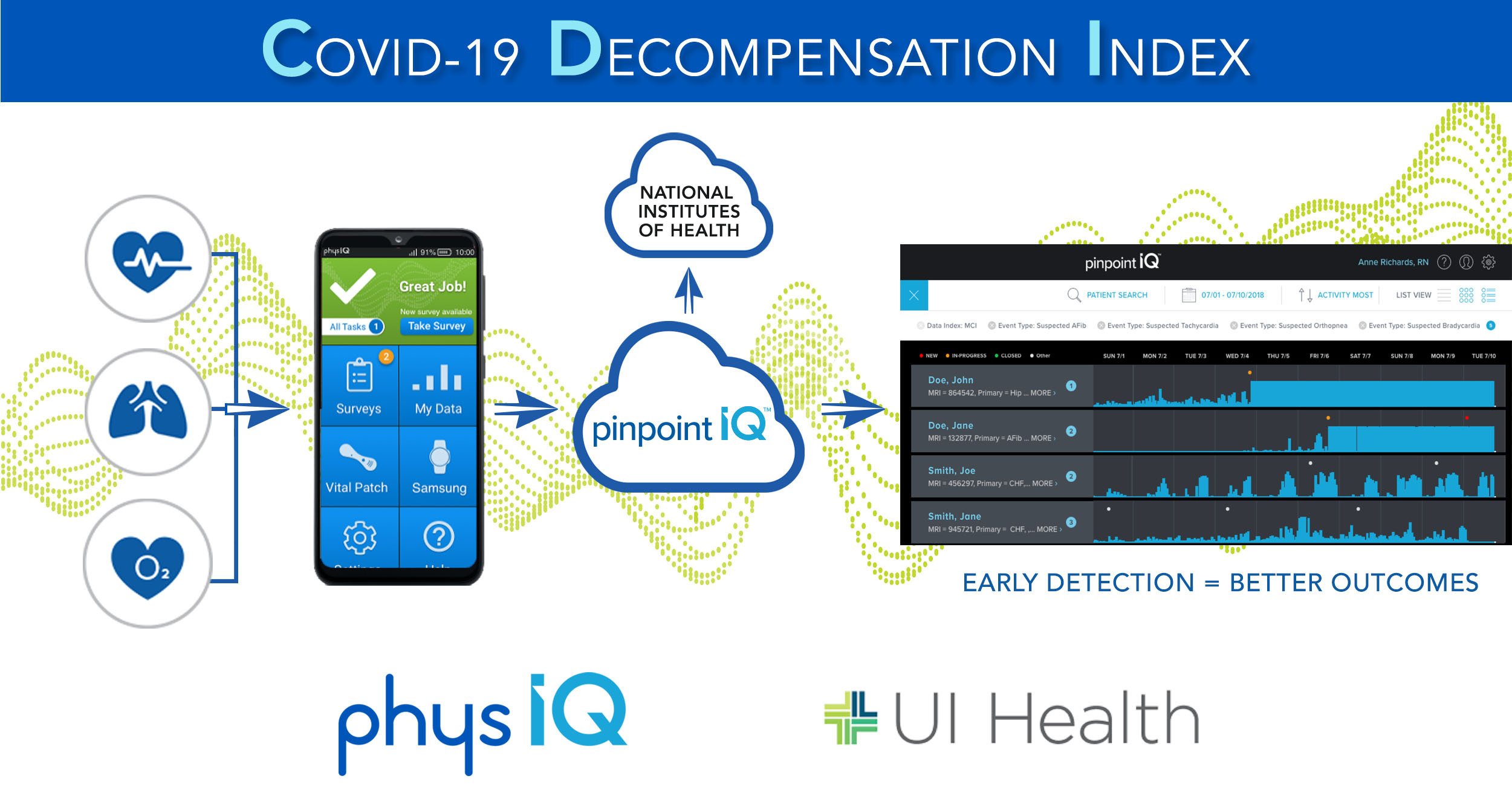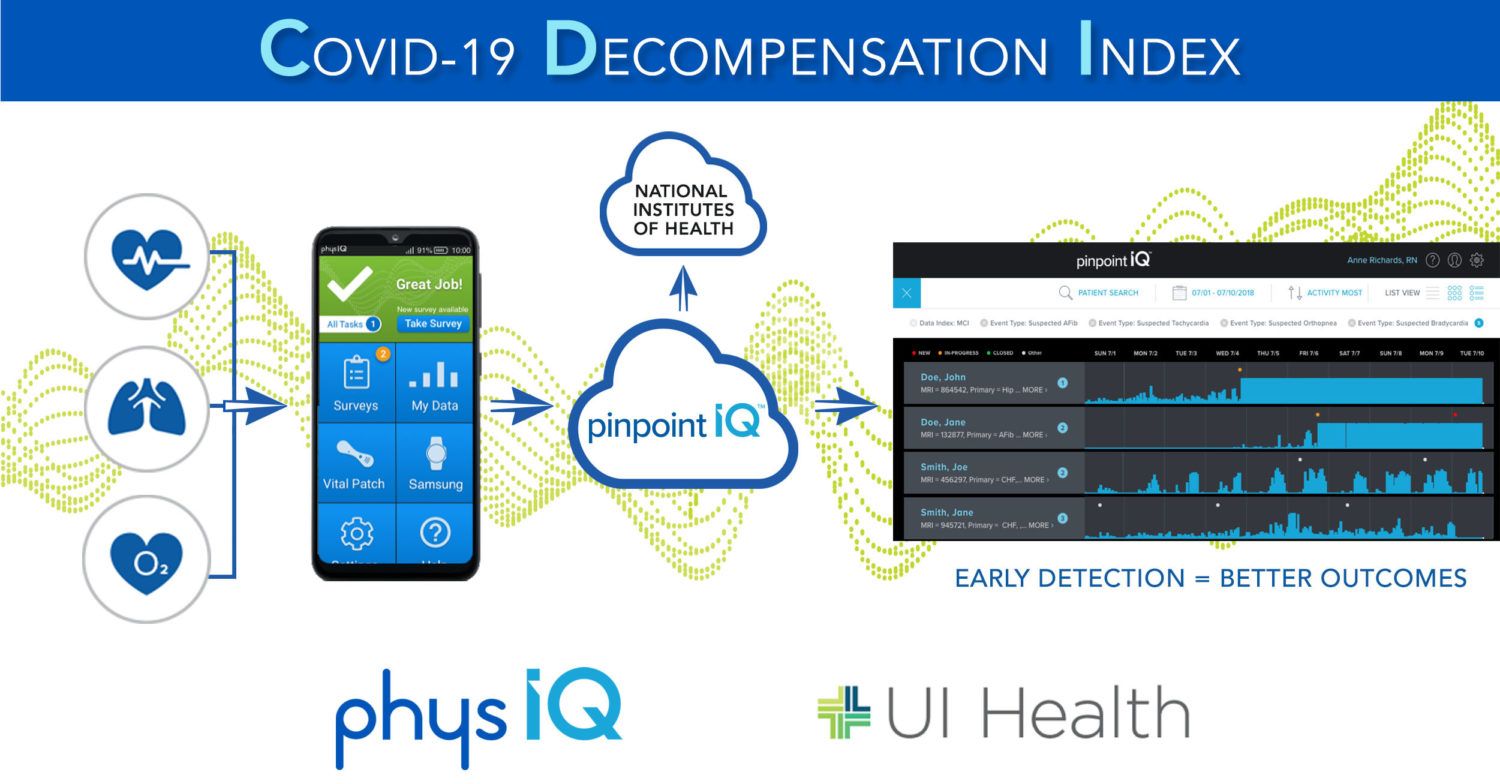

What You Should Know:
– physIQ has been selected by the National Institute of Health (NIH) to develop an innovative AI-based COVID-19 digital biomarker solution to address the COVID-19 pandemic.
– Early detection of COVID-19 decompensation in patients
is complicated by infrequent and non-specific clinical data. The first-in-kind
tool will collect and analyzes continuous physiologic data could provide early
clinical indicators of COVID-19 decompensation.
The National Cancer
Institute (NCI) and the National
Institute of Biomedical Imaging and Bioengineering (NIBIB) of the National Institutes of Health (NIH), have
awarded physIQ a contract to develop an
AI-based COVID-19 Decompensation Index (CDI) Digital Biomarker to address the
rapid decline of high-risk COVID-19 patients.
Why It Matters
Today, high-risk COVID-19
patients and their providers are finding out too late that in the disease
continuum they are getting sicker and need urgent care. The new early warning
system under development could allow providers to intervene sooner when a
COVID-19 patient is clinically surveilled from home and begins to worsen.
Rather than relying on point measurements, such as temperature and SpO2, that
are known to be lagging or insensitive indicators of COVID-19 decompensation,
continuous multi-parameter vital signs will be used to establish a targeted
biomarker for COVID-19.
Despite the technological advances and attention paid to COVID-19, the healthcare community is still monitoring patient vitals the very same way as we did in the 1800s,” said Steven Steinhubl MD, Director of Digital Medicine at Scripps Translational Science Institute (STSI) and a physIQ advisor. “With the advances in digital technology, AI and wearable biosensors, we can deliver personalized medicine remotely giving caregivers new tools to proactively address this pandemic. For that reason alone, this decision by the NIH has the potential to have a monumental impact on our healthcare system and how we manage COVID-19 patients.”
COVID-19 Decompensation Index (CDI) Digital Biomarker Development
PhysIQ will develop and validate a CDI algorithm that builds off existing wearable biosensor-derived analytics generated by physIQ’s pinpointIQTM end-to-end cloud platform for continuous monitoring of physiology. The data will be gathered through a clinical study of COVID-19 positive patients in collaboration with the University of Illinois Hospital and Health Sciences System (UI Health) and build upon work already in-place for monitoring COVID-19 patients convalescing at home.
In the development phase of this project, physIQ and its clinical partner will monitor participants who are confirmed COVID-19 positive, whether recovering at home or following discharge from the hospital. During the validation phase, physIQ will evaluate lead time to event statistics, decompensation severity assessments, and the ability for CDI to predict decompensation severity.
“The application of the CDI may provide a universal indicator of decompensation,” said Karen Larimer PhD, ACNP-BC, study PI and physIQ’s Director of Clinical Development. “Application of this technology could detect COVID-19 decompensation and prevent hospitalization or morbidity events in both scenarios.”
The study is designed to capture data from a large, diverse
population to investigate CDI performance differences among subgroups based on
sex/gender and racial/ethnic characteristics. This project will not only enable
the development and validation of the CDI, it will also collect rich clinical
data correlative with outcomes and symptomology related to COVID-19 infection.
This index will build on physIQ’s prior FDA-cleared, AI-based multivariate change index (MCI) that has amassed more than 1.5 million hours of physiologic data, supporting the development of this targeted digital biomarker for COVID-19. This will enable new research and further insight into using digital health to advance the public health response.